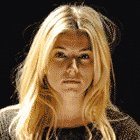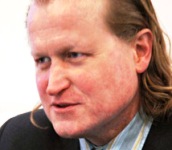Celebrities' privacy under the spotlight at Leveson Inquiry
A litany of complaints and revelations at the Leveson Inquiry today concentrated on the contentious issue of the level of privacy those in the public eye can reasonably maintain.
It was a marathon session, and in a sobering testimony that took up much of the afternoon, Harry Potter author JK Rowling said she felt “under siege” by the press, listing a slew of incidents in which she and her family had been covertly photographed and followed by reporters.
She accused the press of putting her family under surveillance for their “amusement”, noting how photographers had camped outside her home. After a photo had been published of her house number and street name, Rowling was forced to move, saying it was “untenable” to stay at that address.
Rowling said protecting her children’s privacy was crucial. “A child, no matter who their parents are, deserves privacy”, she said, adding that she and her husband had gone to great lengths to prevent their children from being photographed or targeted.
She spoke of feeling “invaded” having found a note in her daughter’s schoolbag addressed to her from a journalist. On another occasion, a reporter had contacted her daughter’s school, telling the headmaster the girl had upset other pupils by telling them Harry Potter dies in the final book. Rowling said her daughter had not done so, and was made out to be a “bully”. Photographs of her daughter, then aged eight, in a swimming costume also appeared in OK! magazine.
Rowling passionately defended the occasions when she had spoken openly about her personal life. “Our cultural life would be greatly diminished if creative people not allowed to say where they received inspiration,” she said, noting that she had openly discussed having suffered from depression, and had received letters of support in return.
Ex-Formula 1 boss Max Mosley, who sued the News of the World in 2009 for breach of privacy, also gave evidence today, reiterating his staunch campaign for reform in celebrity privacy laws.
Mosley was at the centre of a 2008 News of the World splash which falsely reported him taking part in a “sick Nazi orgy” with five prostitutes.
He said that when he challenged the story, “the entire resources of News International were deployed to destroy me.” He described that, when he took the paper to court, their response to send a film of him taking part in an alleged sado-masochistic orgy to the governing body of world motorsport, the FIA. He then launched legal action against the tabloid, receiving £60,000 in damages for breach of privacy.
During his lengthy account, he dismissed the Sun headline ‘The Day Freedom Got Spanked’ in response to his case as “typical of gutter press.” Responding to Daily Mail editor Paul Dacre’s accusation of Mosley being “guilty of unimaginable depravity,” the ex-motorsport boss said “it reflects badly on his [Dacre’s] imagination.”
Mosley reaffirmed his case for newspapers adopting a prior-notification policy to warn people before publishing stories exposing their private lives. “Once information is made public, it can never be made private again,” he said. “The only effective remedy is to stop it becoming public.” In May 2011, Mosley lost his bid impose a legal duty of prior notification, with the European Court of Human Rights ruling that such a system would have a “chilling effect” on the press.
Mosley also veered into the contentious territory of policing content online, noting that search engines such as Google “could stop a story appearing, but don’t or won’t as a matter of principle.”
“The really dangerous thing is the search engines,” he said, to which Leveson responded: “That’s part of the problem.”
Mosley is currently taking litigation action in 22 countries and suing Google in France and Germany. He added he is considering bringing proceedings against the search engine in California in an attempt to remove certain search results.
Also appearing today was actress Sienna Miller, who described how she had been verbally abused and spat at by photographers, who had on occasion chased her down the street. “I felt like I was living in some sort of video game,” she said, noting that the press intrusion and surveillance left her in a state of “complete anxiety and paranoia.”
Miller, who has taken out a court order against the paparazzi, revealed she had accused friends and family of having leaked stories to the press. She later learned she and her friends had been victims of phone (and in Miller’s own case, email) hacking, and that private investigator Glenn Mulcaire had “created a project” under her name. “It’s unfathomable to feel like they [the press] can justify doing this,” she said.
Her lawyer, Mark Thomson, was also in the witness box today, primarily discussing regulation. He accused the Press Complaints Commission of wearing “too many hats”, and that an improved body “with a few extra teeth” would not work.
He said an effective regulator would need to deal with all news
He added that redtops and tabloids do not want the PCC to be effective. “As long as it exists, this kind of activity will go on, he said.”
The Inquiry will continue on Monday, with evidence from Chris Jefferies, Anne Diamond, Charlotte Church, Jane Winter and Ian Hurst.
Follow Index on Censorship’s coverage of the Leveson Inquiry on Twitter – @IndexLeveson.


